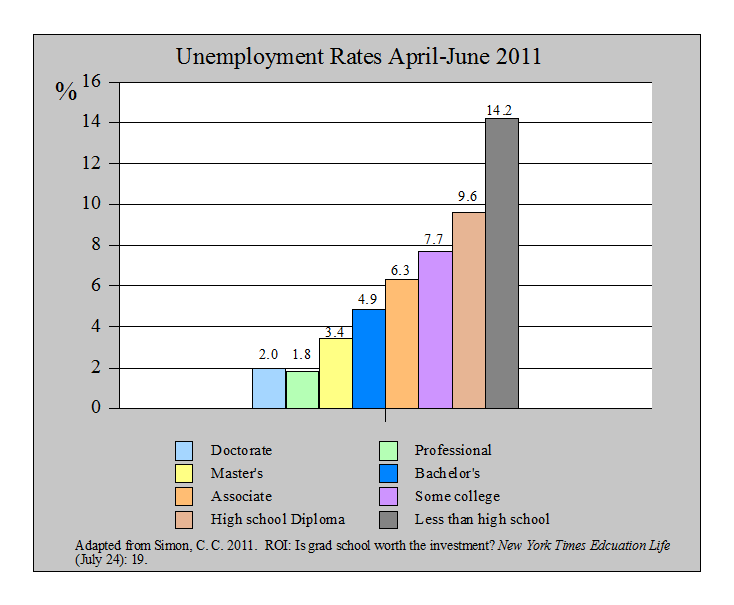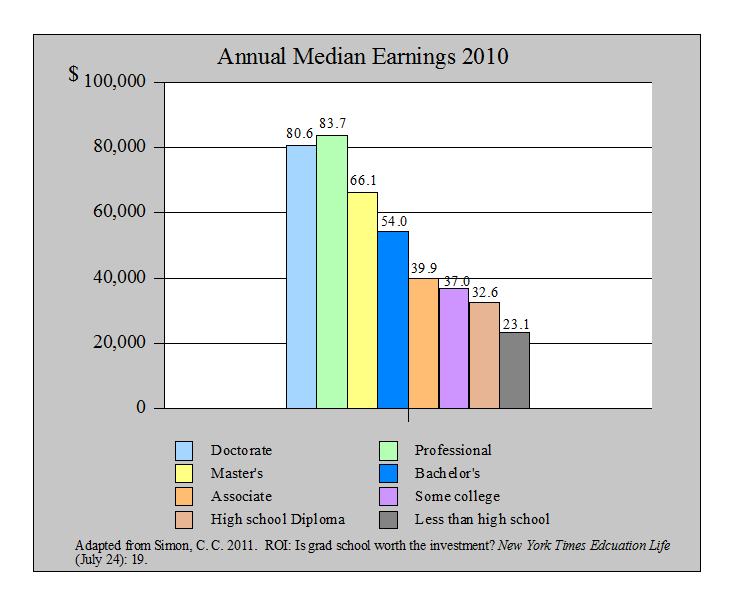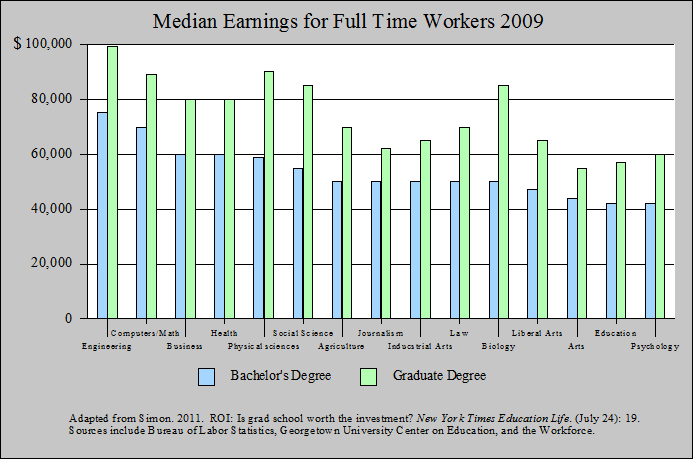
Summary by James R. Martin, Ph.D., CMA
Professor Emeritus, University of South Florida
Education Issues Main
| How to Manage Yourself Main
The purpose of this paper is to provide some data on the monetary value of graduate degrees in various fields. The author recognizes that many who pursue a career do not think of it in terms of ROI. However, students should consider the financial implications of obtaining both bachelor's and graduate degrees in their chosen fields.
Before we consider the return on investment aspect of obtaining an education, it is useful to consider the general value of different levels of education from the unemployment perspective. Education clearly pays off as indicated in the first illustration below.

From the monetary perspective, the case for obtaining a master's degree is fairly clear. In 2009 the median earnings for those with a master's degree was approximately 25 percent higher than those with only a bachelor's. For example, the average starting salary for an M.B.A. in 2011 was $91,000, while the average M.B.A student borrowed about $32,000. In 2007 the M.B.A.s from the top 50 MBA programs averaged 17 percent on their investment. Business, life sciences, physical sciences and social work are all on the list of "you're crazy if you don't get a master's degree". This viewpoint is supported by the data in the two tables below. First, the annual median earnings for the year 2010 are illustrated, followed by the median earnings for full time workers in a variety of fields.

A rule of thumb mentioned in the article is that the amount of debt incurred to obtain a graduate degree should not exceed the starting salary, and ideally it should only be about half of that amount. In other words, the goal should be to keep the debt to salary ratio down to about 50% if possible.

As indicated in Pappano's article below, the master's is becoming the new bachelor's. The theme of Pappano's article is that those with master's degrees are more competitive in the marketplace. This article supports the value of a graduate degree from a somewhat different perspective, i.e., that the return on investment for a graduate degree in many fields is worth the time, money, and effort required.
______________________________________________
Related summaries:
Drucker, P. F. 2005. Managing oneself. Harvard Business Review (January): 100-109. (Summary).
Kamenetz, A. 2009. Who needs Harvard? Free online courses, Wiki universities, Facebook-style tutoring networks - American higher education is being transformed by a cadre of web-savvy edupunks. Fast Company (September): 84-89. (Summary).
Kaplan, R. S. 2008. Managing yourself: Reaching your potential. Harvard Business Review (July-August): 45-49. (Summary).
Martin, J. R. Not dated. The accounting doctoral shortage and opportunities to teach accounting. Management And Accounting Web. AccountingDoctoralShortage.htm
Pappano, L. 2011. The master's as the new bachelor's: Call it credentials inflation. A four-year degree may not cut it anymore. The New York Times Education Life (July 24): 16-18. (Summary).
Schiffel, L., K. A. Smith and D. L. Schroeder. 2011. IMA 2010 salary survey: How's that recovery workin' for you? Strategic Finance (June): 26-46. (Summary).